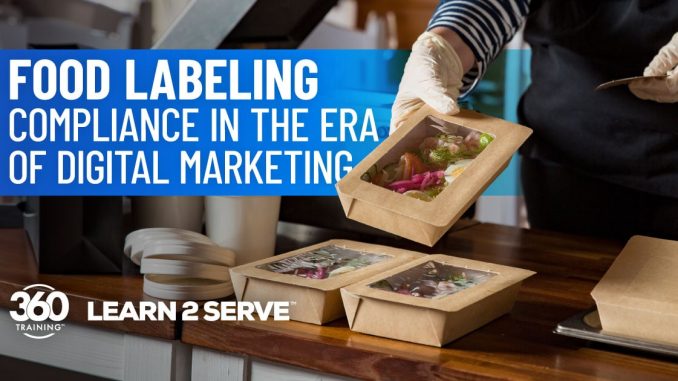
Food Labeling: Compliance in the Era of Digital Marketing You may know that the Food and Drug Administration has strict rules about food labeling, but how do those rules apply to your online presence? With more and more people making choices based on what they see online, it’s crucial to understand how these trends fit with the rules for food labels. In this blog, we’ll simplify the details, giving you tips on how businesses can balance effective digital marketing and following labeling guidelines. We’ll break down how online ads and promotions connect with the standards that food labels need to meet. Online Marketing as an FDA “Label” For a decade, the FDA has been going after companies for online marketing that violates its labeling rules on the pharmaceutical side of things. For example, in 2014, the FDA issued a warning letter to a company called Zarbee’s, which was promoting its supplements online with claims that would only be legal if those products were reclassified as pharmaceuticals. During this case, it wasn’t just official online marketing that got Zabee’s in hot water. One of the FDA’s criticisms was that Zarbee’s “liked” certain consumer testimonials on social media, which the FDA took as an official endorsement of those statements. This is how the FDA established that statements on a company’s websites, advertisements, social media accounts, or product descriptions should be considered an extension of their product labeling (and therefore subject to FDA review and requirements). Third-party statements – like consumer comments or reseller websites – may be considered under labeling requirements if the FDA believes the company endorsed the statement or had influence over it. These rulings are worth remembering as your food brand interacts on social media. Historically, many of the Food and Drug Administration’s policies get rolled out first on the “drugs” and later applied to “food.” That looks like a trend that will repeat on the issue of online labeling compliance. FDA Scrutinizes Online Food Marketing in 2023 Food marketing always lags behind pharmaceuticals and supplements in terms of FDA regulation, but in recent years, the FDA has made several moves that demonstrate that online food marketing is now on their radar. In 2018, the FDA implemented a menu labeling rule for chain restaurants and similar retail food establishments that requires calorie disclosures on menus and menu boards. This rule explicitly included any version of the menu that is electronic or online. In April of 2023, the FDA issued a Request for Information (RFI) to assess the content, format, and accuracy of labeling information available on online grocery shopping platforms. They’re focused on consumers’ access to information on nutrition, ingredients, and allergen information of packaged foods while shopping online. An RFI is one of many steps in the FDA rule-making process, so it’s reasonable to assume that a standardized online labeling requirement will come online within the next few years. The “what” is likely to be similar – for example, online allergen labeling requirements will likely be consistent with hard labeling requirements in terms of the ingredient list and “contains” statement, but there may be specific placement requirements to ensure that information is prominent enough in online contexts. Know Current Food Safety Rules and Best Practices Ensuring the safety of your consumers is bigger than compliance with FDA labeling requirements. It’s important that your entire team be educated on food allergies, foodborne illness, and other food safety topics. As an online regulatory compliance training provider with over twenty years of experience, we have ANAB-accredited Food Allergy courses that will help you understand common food allergies and intolerances and the best practices for safely preparing food for people with allergies. We also offer a Food Manager certification course that will help you develop a thorough understanding of food safety principles for preventing all kinds of spoilage, disease, and contamination.

Leave a Reply